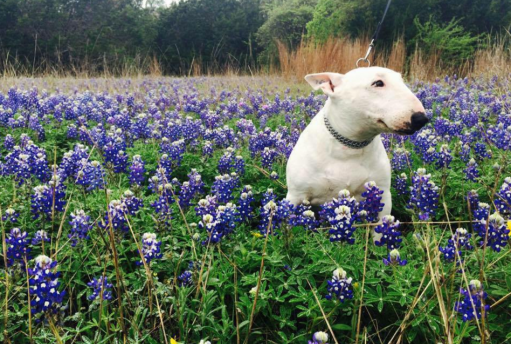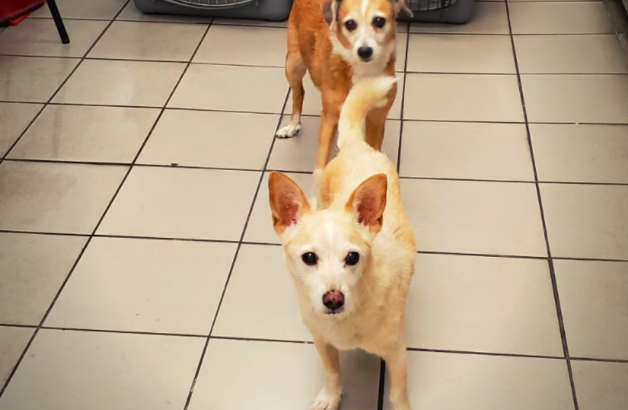Moving to Hong Kong with pets in tow? You've come to the right place! Meet our experts and see how we can make this portion of your relocation as stress-free as possible.
Need our Support?
What to Know Before Bringing Dogs and Cats to Hong Kong
-
Microchip and Vaccinations
Make sure your pet meets these basic requirements so you can begin the import process.
-
Import Documentation
The Hong Kong requires an import permit and endorsed documentation that your veterinarian must complete.
-
Quarantine (and more)
Most pets do not require quarantine when entering Hong Kong.
Hong Kong Import Requirements and Timeline
 Nancy: US to Hong Kong
Nancy: US to Hong Kong
Microchip and vaccinations
Time frame: we recommend starting at least 30 days ahead
All pets entering Hong Kong must be microchipped and vaccinated against rabies and other species-specific vaccines. Read more below for specific details and requirements.
How to start the process of moving your pet to Hong Kong
Microchip
- Dogs: Hong Kong requires all dogs to be microchipped before import. This can be an AVID 9-digit or ISO-compatible microchip (Home Again, ResQ, etc.). However, all dogs must be registered in Hong Kong with an AVID 9-digit microchip. If your dog does not have an AVID 9-digit microchip upon arrival in Hong Kong, they will be re-chipped with an AVID 9-digit microchip.
- Cats: Hong Kong requires all cats to be microchipped before import. This can be an AVID 9-digit or ISO-compatible microchip (Home Again, ResQ, etc.).
Rabies Vaccination and Certificate
- All pets must have an original Rabies Certificate, which must state the microchip number, the date of inoculation, and the validity of the vaccination you obtain. The rabies vaccine must be at least 30 days old at the time of pet transportation to Hong Kong.
Current Vaccination Records for Dogs and Cats
Records must be at least 14 days old and less than a year before departure.
- Canine Distemper, Parvovirus, Hepatitis, and Leptospirosis
- Feline Cat Flu-Feline Calicivirus
- Feline Viral Rhinotracheitis
- Chlamydia Psittaci
- Cat Enteritis-Feline Panleukopaenia/Feline Parvovirus
 Eunice: US to Hong Kong
Eunice: US to Hong Kong
Import Documentation
Time frame: Within 7 days prior to departure
PetRelocation will apply for and obtain an import permit on your behalf. At this stage, we provide detailed templates for your veterinarian and answer any questions regarding the proper completion of all forms.
Proper paperwork prevents hangups at customs
Import Permit
- An import permit is required to enter Hong Kong.
Vet Health Certificate (USDA APHIS Form 7001)
- This is the standard Health Certificate to be filled out by your USDA accredited Veterinarian. It must be issued within seven days of the flight.
Hong Kong Health Certificate
- This is the AFCD health certificate to be filled out by your USDA-accredited veterinarian along with Form 7001. It must be issued within seven days of the pet's transportation.
USDA Endorsements
The documents below must be sent to your local USDA for their approval. Please contact your PetRelocation Coordinator to learn more about how to manage this.
- Microchip Implantation Record
- Rabies Certificate
- Vaccination Records
- Import Permit
- Vet Health Certificate (USDA APHIS Form 7001)
- Hong Kong Health Certificate
 Freya: US to Hong Kong
Freya: US to Hong Kong
Quarantine
When importing from most countries, your pet should not require quarantine.
Ensure you know the import requirements and restrictions due to breed when importing pets into Hong Kong.
Banned and restricted breeds
Check your country of export:
When the import regulations are followed, most pets entering Hong Kong will not need quarantine. However, importing from some countries may require a quarantine stay. You can check your country of export here or ask your relocation coordinator.
To enter Hong Kong, dogs, and cats must be at least five months old.
Banned breeds in Hong Kong:
Not all breeds are allowed in this country. You may not be able to bring your pet if they are one of the following breeds (or a mix of one):
- Pit Bull Terrier
- American Staffordshire Terrier
- Japanese Tosa
- Dogo Argentino
- Fila Brasileiro
- Savannah cats.
Pets transported to Hong Kong resembling the above breeds could be seized by the authorities and returned to their place of origin at the owner's expense.




